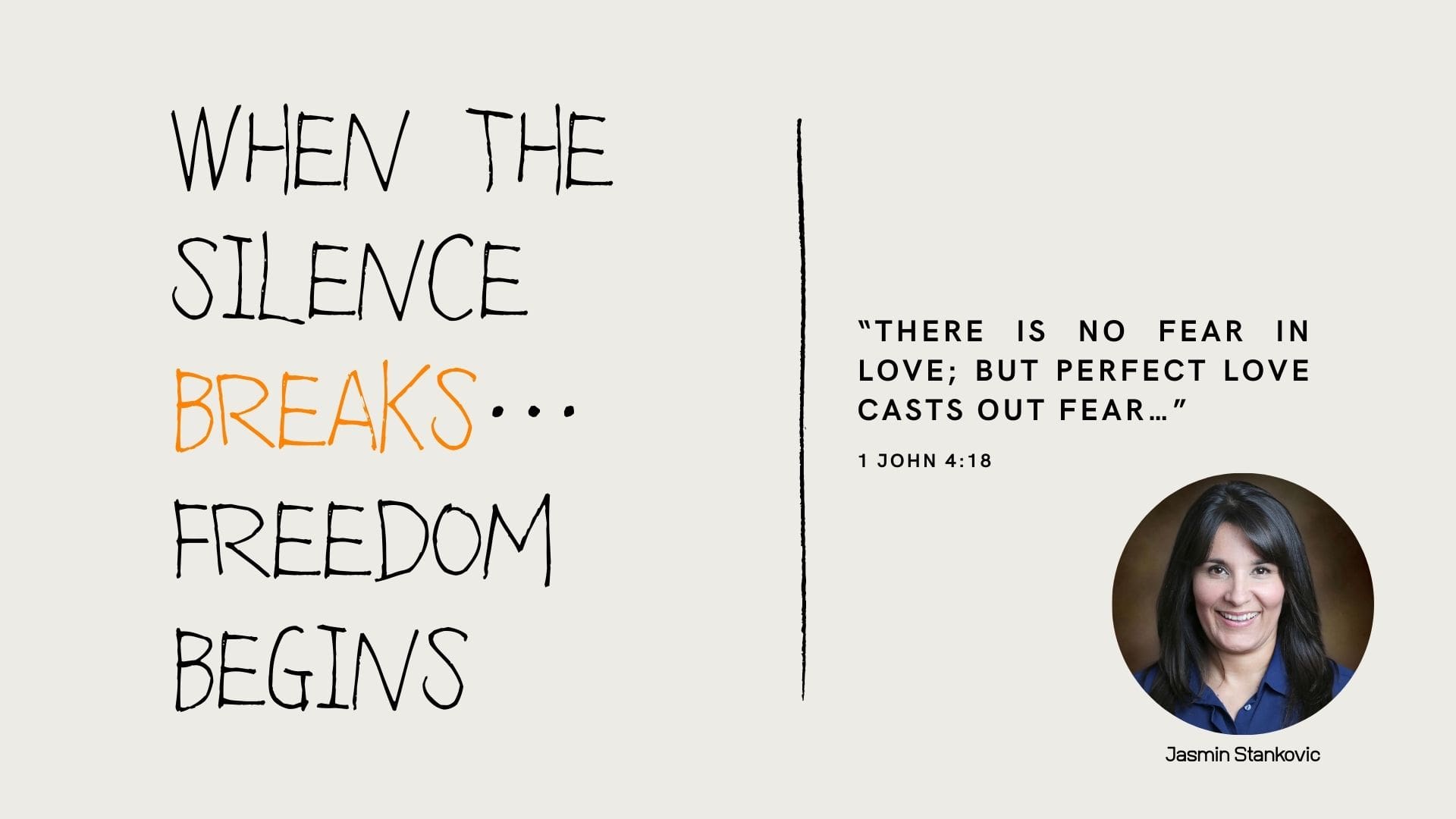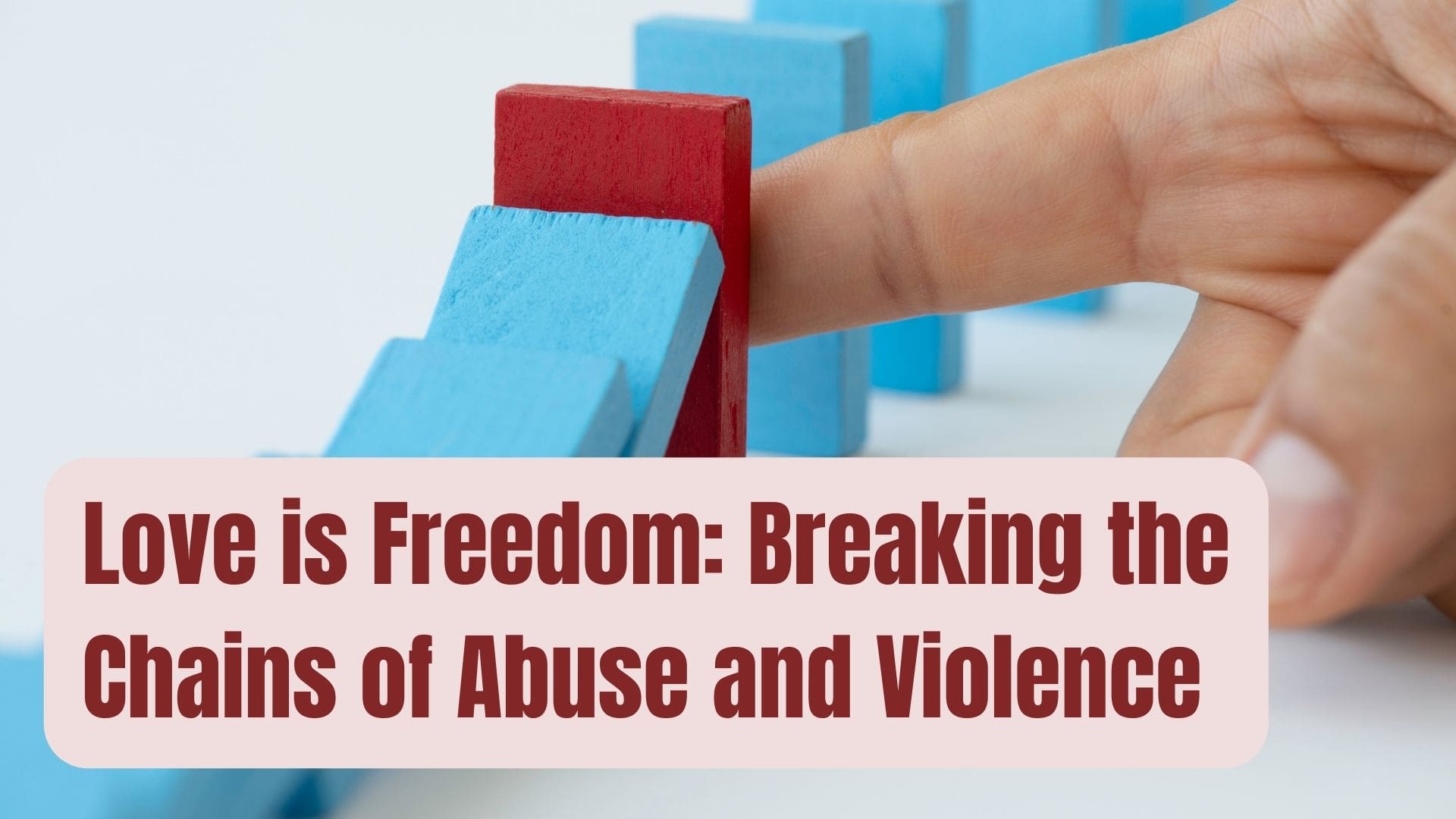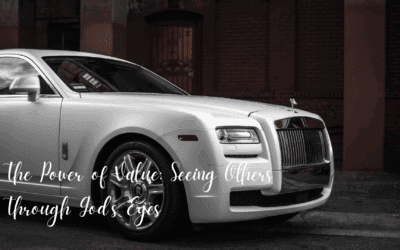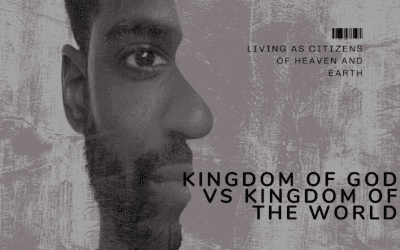Love is Freedom: Breaking the Chains of Abuse and Violence
In a world where darkness often threatens to overshadow light, we are called to be beacons of hope and harbingers of justice. Today, we delve into a topic that demands our attention and action: domestic violence and abuse. Many would rather avoid it, but we must confront it with courage, compassion, and unwavering faith.
At the heart of this message lies a profound truth: love is freedom. This simple yet powerful statement serves as our compass as we navigate the complex terrain of abuse and its impact on individuals, families, and communities. True love, in its purest form, does not imprison, silence, or instil fear. It does not wound or hurt. Instead, it liberates, heals, and restores. Our faith in this truth is the beacon of hope that can guide us through the darkest times.
To understand abuse, we must first dispel common misconceptions. Abuse is not just losing one’s temper or having a bad day. It’s not mutual arguing or a personality clash. Most importantly, abuse is never love. As 1 John 4:18 reminds us, “There is no fear in love, but perfect love casts out fear.” Abuse thrives on fear, control, and the crushing of the human spirit – the very antithesis of God’s love.
The Bible speaks clearly and forcefully against violence and abuse. In Genesis 6:13, we see God’s grief over a violent world, leading to the flood. Jesus, in Matthew 18:6, uses startlingly strong language about those who harm the vulnerable: “If anyone causes one of these little ones—those who believe in me—to stumble, it would be better for them to have a large millstone hung around their neck and to be drowned in the depths of the sea.” And in Psalms 11:5, we read that God “hates with a passion” those who love violence.
These aren’t just ancient words; they’re a call to action for us today. We’re challenged to look at abuse through God’s eyes – as a grave injustice that demands our response.
Hagar, Tamar, Bathsheba: God Sees, Hears, and Heals
To bring this message to life, let’s consider the stories of three women from the Bible: Hagar, Tamar, and Bathsheba. Each of their narratives illuminates different facets of abuse and God’s response.
Hagar, a servant cast out and abandoned, encounters God in the wilderness. In her moment of deepest despair, she experiences the profound truth that she is seen and known by El Roi – the God who sees. Her story reminds us that even in the most isolating circumstances, we are never truly alone or forgotten by God.
Tamar’s tragic tale of incest and betrayal by her own family is a stark reminder of the devastating impact of sexual abuse. Though initially silenced, her voice becomes a cry for justice and healing. Tamar’s courage in speaking out challenges us to break the silence that often surrounds abuse. Her courage is a testament to the strength within each survivor, and our duty is to stand with them in their journey towards healing.
Bathsheba’s encounter with King David reveals the ugly face of power abuse. From a woman silenced by royal authority, she emerges as a voice of influence, shaping Israel’s destiny. Her journey from victim to advocate reminds us of the transformative power of finding one’s voice.
These biblical accounts aren’t mere historical anecdotes; they’re mirrors reflecting the experiences of countless individuals today. One in four women reports emotional abuse by partners. One in five women has experienced sexual violence. These statistics aren’t just numbers; they represent real people with real pain, sitting in our pews, walking our streets, perhaps even in our homes.
So, what is our response? The prophet Micah provides a robust framework:
“He has shown you, O mortal, what is good. And what does the Lord require of you? To act justly and to love mercy and to walk humbly with your God.” (Micah 6:8)
To act justly means actively opposing abuse, supporting victims, and protecting those at risk. It means refusing to cover up or ignore mistreatment for the sake of tradition, religion, or reputation.
To love mercy involves treating others with compassion, patience, and respect. It means standing with survivors, offering support without blame or shame. It also means offering abusers a path to transformation, but never at the expense of victims’ safety or dignity.
Walking humbly with God challenges us to reflect His character, acknowledging our limitations and treating all as equals in God’s sight. This starkly contrasts the pride and distorted sense of power that drives abuse.
A Christian Response: Justice, Mercy, Humility
As we confront this complex and often daunting topic, remember there is hope – for survivors, perpetrators willing to change, and the church. We may face resistance, fear, and uncertainty, but we can make a difference with God’s guidance and collective commitment.
To survivors: Your pain does not define your worth. Your voice matters, and your story is powerful. God sees you, loves you, and is with you every step of the way. There is hope beyond the silence; you will find strength, peace, and new life in breaking free.
To those who have caused harm: You are not beyond hope, but hope begins with taking responsibility. Seek help, submit to accountability, and let God remake your heart. Change is possible, but it requires daily choice and commitment.
To the church: We are called to be a refuge for the wounded, not a hiding place for harm. We must stand with the abused, refuse to let tradition silence truth, and reflect the justice and mercy of Christ. Let us be a place where survivors are believed, safety is sacred, and compassion is not conditional.
Let us return to our foundational truth: love is freedom. As we seek to embody this in our lives and communities, may we be guided by God’s everlasting love, described in Jeremiah 31:3: “I have loved you with an everlasting love; I have drawn you with unfailing kindness.”
Call to Action
This is our call to action—to love rightly by doing justice, to love deeply by showing kindness, and to love truthfully by walking humbly. In doing so, we become agents of God’s liberating, healing love in a world desperately needing hope and freedom. Let us not just hear this call but respond to it with unwavering commitment and dedication.
Click here to watch the message from Jasmin Stankovic, will delve into a crucial topic that often remains hidden in the shadows – domestic violence and abuse. The central message reminds us that love, in its purest form, always equals freedom. This profound truth challenges us to examine our relationships and interactions through the lens of God’s love. We explore powerful biblical stories of Hagar, Tamar, and Bathsheba, women who faced abuse and oppression but ultimately found their voice and strength in God.





